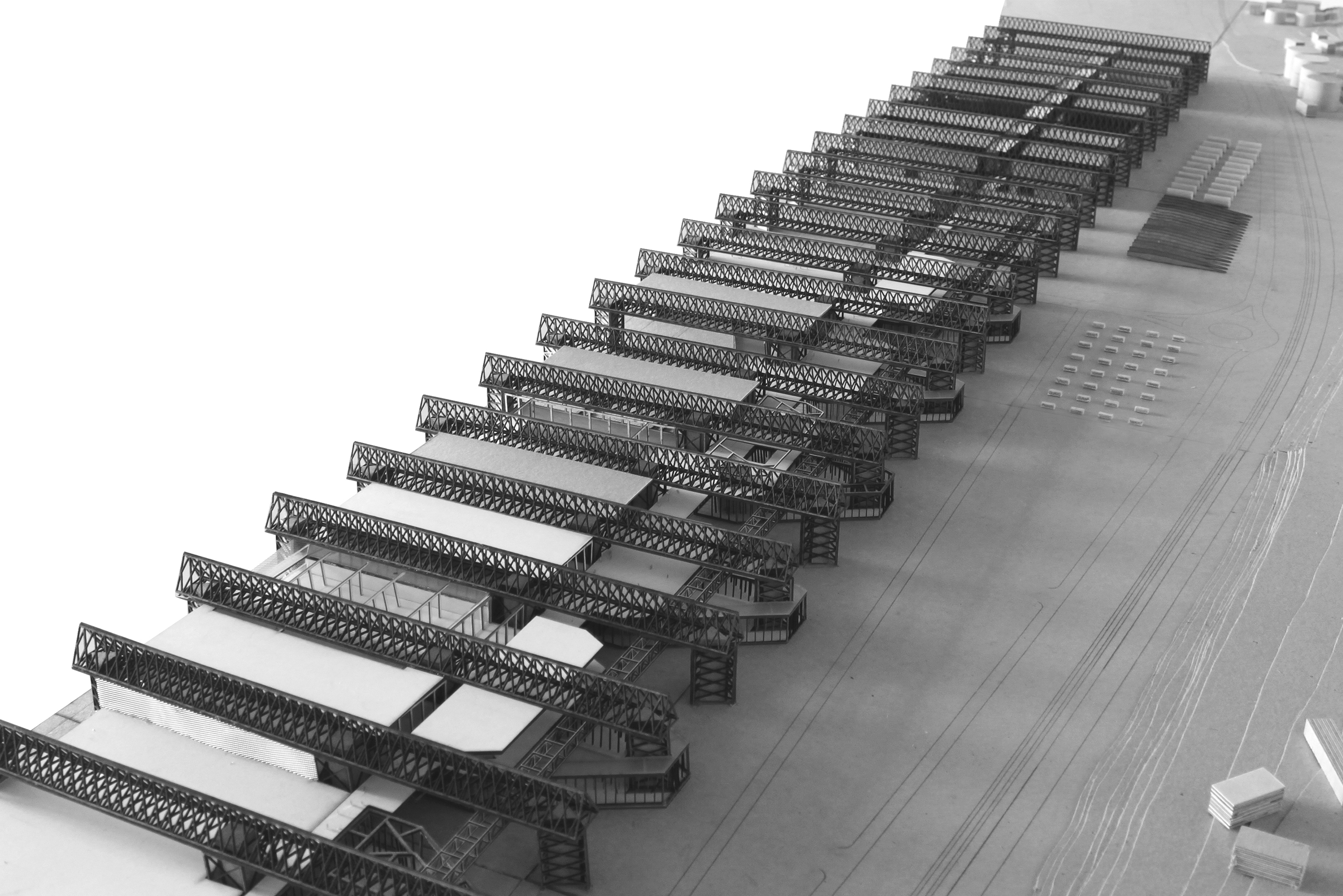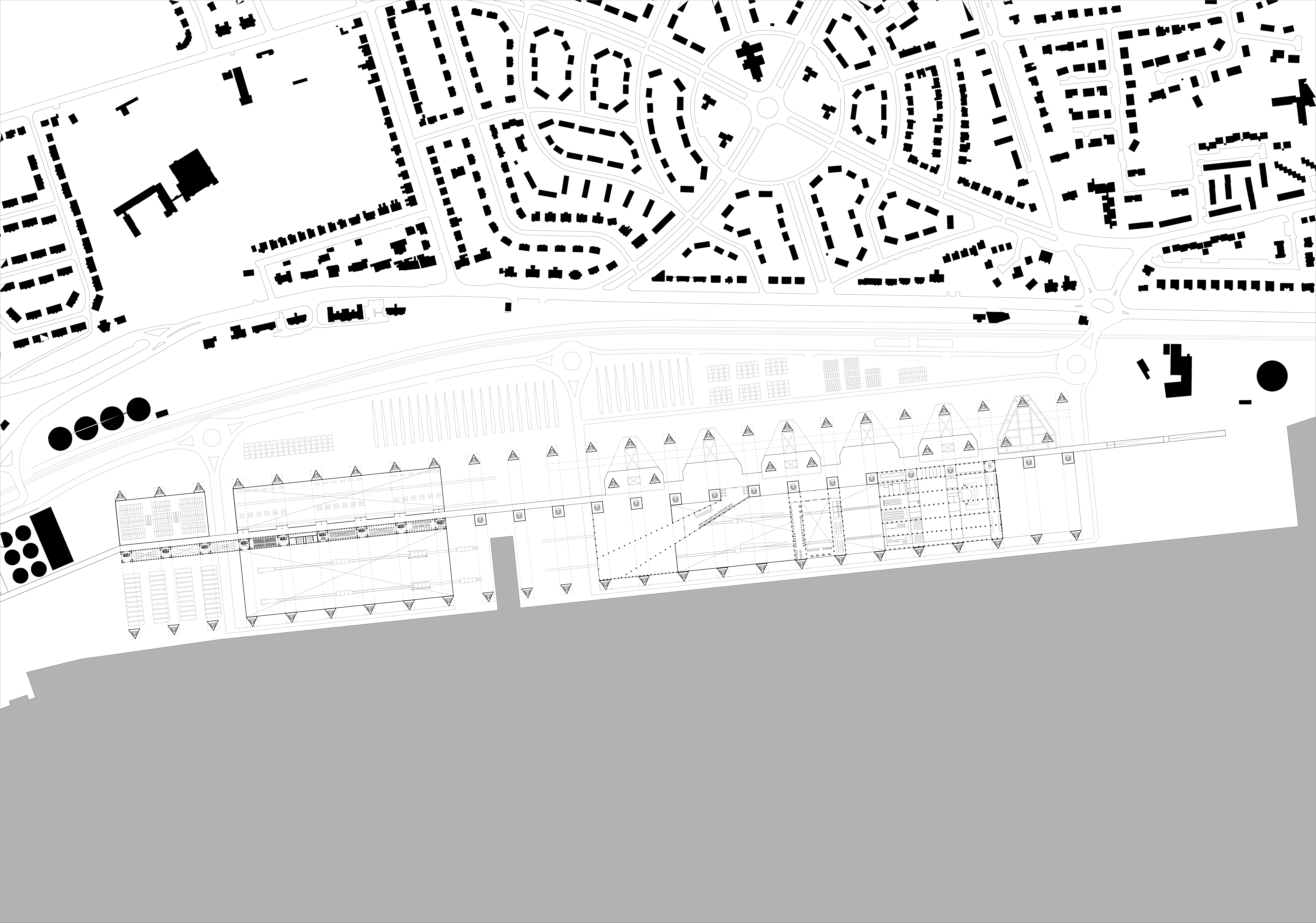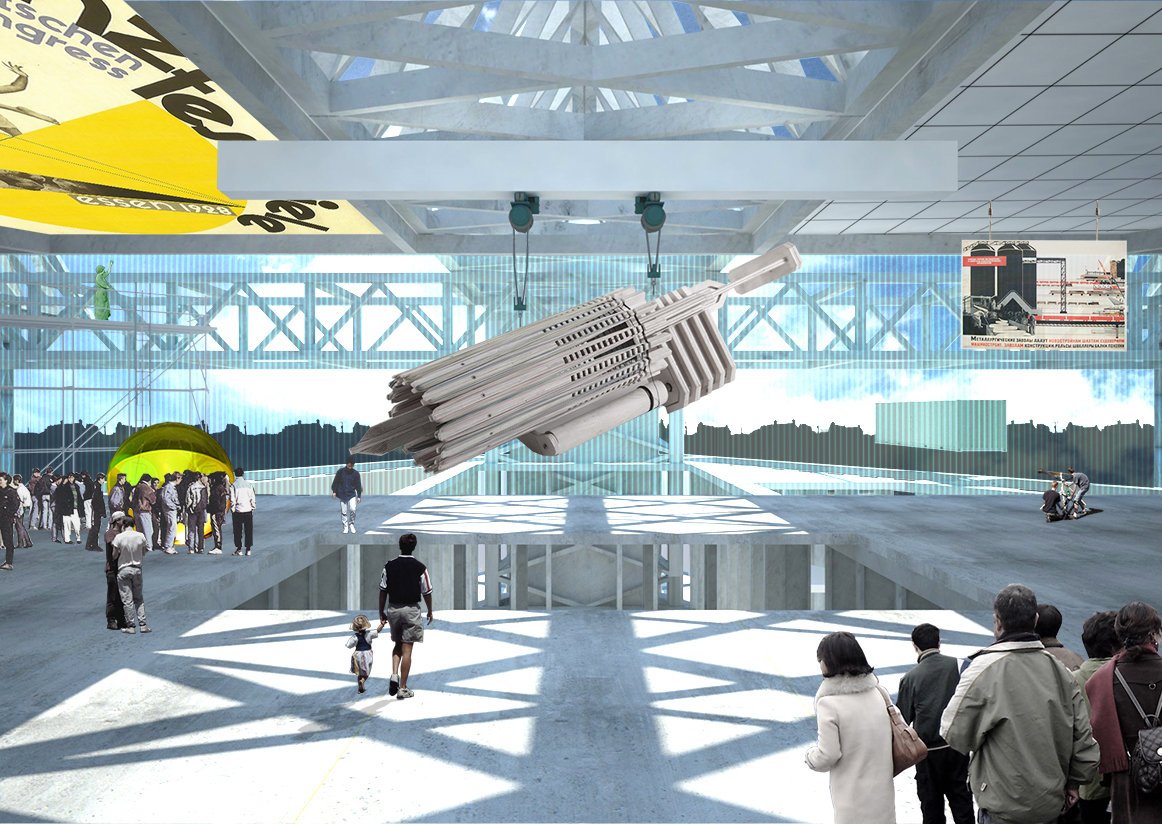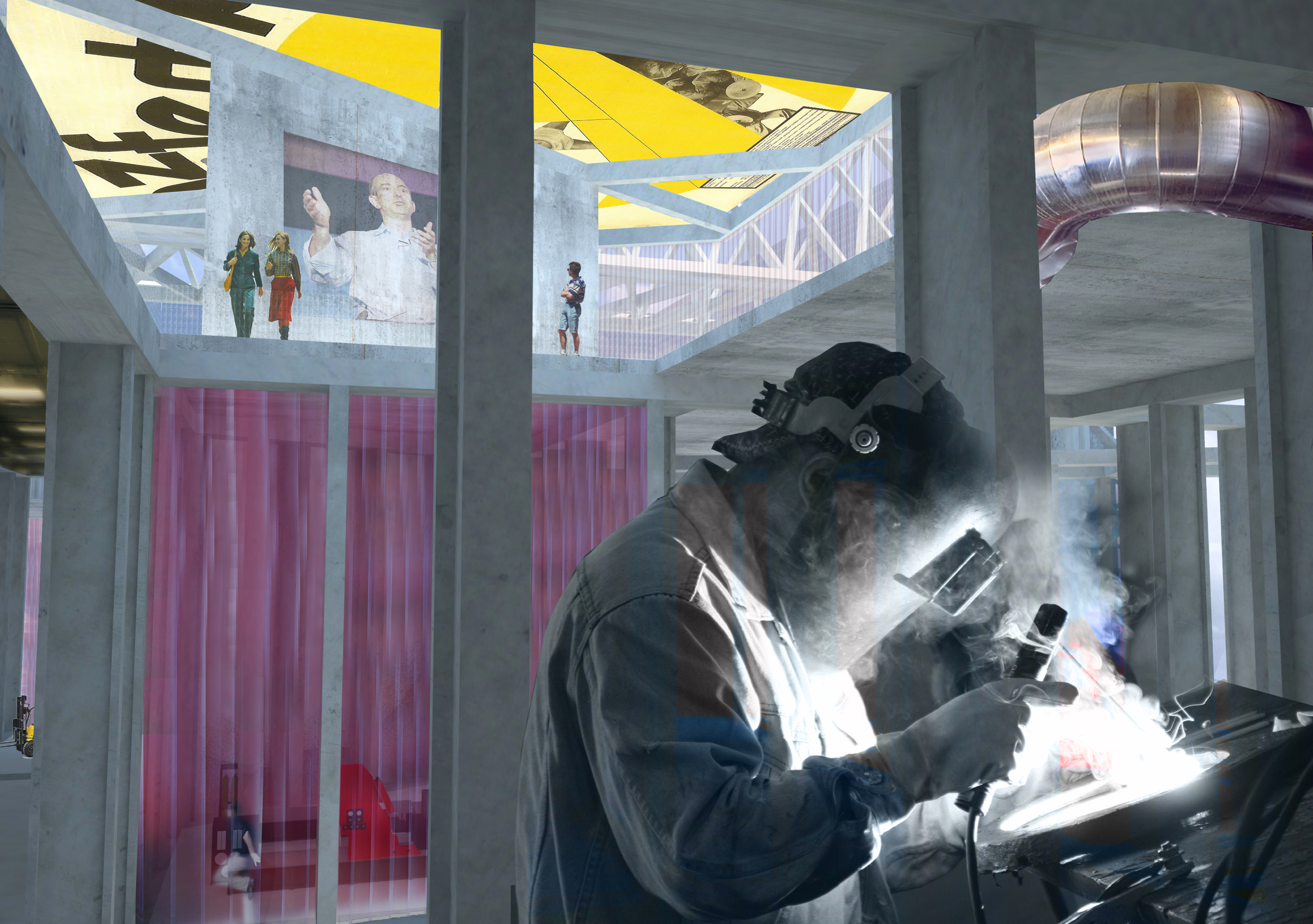
Urbanising the industrial enclave
Re-use at the scale of the cityIn the field of architecture, sustainability is predominantly considered in terms of buildings, materials and processes. As EU leaders have committed to reducing co2 emissions by ninety percent by 2050 the agenda of sustainability must take on both a critical and utopian dimension.
Off the coast of Scotland a growing abundance of oil vessels approach the end of their design life. The decommissioning of such gargantuan structures typically happens in parts of India, in the worst cases they are cut into smaller parts and melted in vast smelting plants. This is an energy intensive process and an inherently short sighted approach to a design task.
This project imagines the literal reuse of a single oil vessel which is taken from sea to land. Through the intelligent reuse of this found nautical structure, it is deconstructed and recomposed to produce a new piece of land architecture. This reconstruction takes the form of an industrial shed, 1km long. Its architecture consists of the rational placement of the oil vessel legs as post and beams. The resultant space is so vast in its proportion that a spectrum of program can be hosted here. Industrial production, enclaved in modern city planning, can in this instance coexist with social functions. Abattoirs, universities, fabrication spaces, waste plants and renewables industries all exist under one roof, a new typology of civic space in which citizens are brought into proximity with the very material products they produce or deem as waste.






Thesis Project
Duncan of Jordanstone College of Art & Design, Dundee University, Scotland
2012